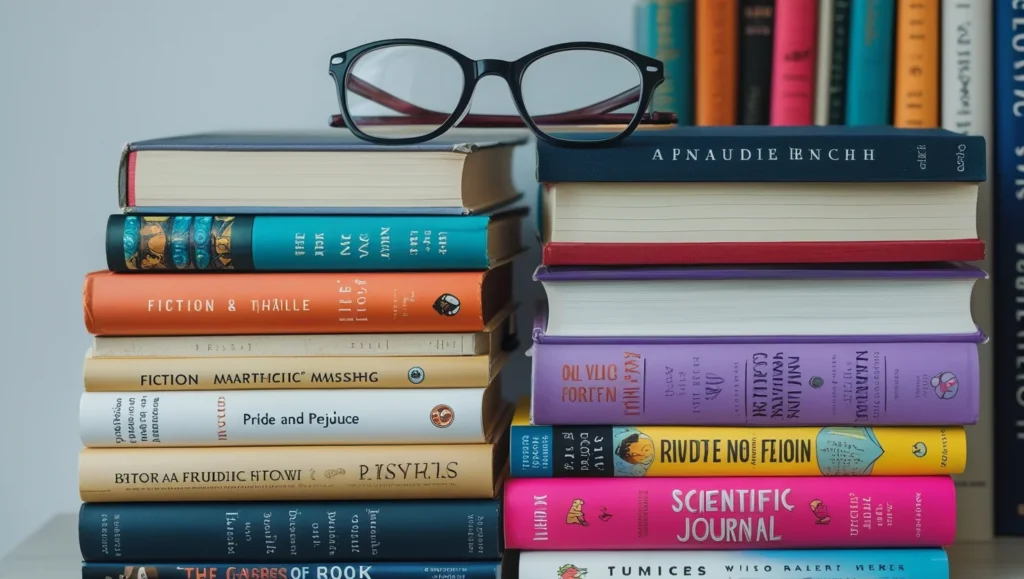Currently Empty: ₹0.00
Blog
How to Improve Reading Skills: 12 Proven Strategies to Read Smarter and Faster

Key Takeaways
- How to improve reading skills: Master reading with techniques like active engagement, consistent practice, and vocabulary expansion to enhance comprehension and speed.
- Examining a variety of genres broadens viewpoints and improves critical thinking.
- Goal-setting and progress tracking fuel motivation and measurable growth.
- Technology, including apps and audiobooks, offers innovative ways to strengthen reading.
- For long-term progress, community support and a growth mentality are essential.
Introduction: Unlocking the Power of Reading in a Digital Age
Picture yourself diving into a novel, a research paper, or a news article, grasping every idea with clarity and savoring the experience. For many, this vision feels out of reach, overshadowed by distractions or struggles with focus. In our digital era, where information floods our screens, knowing how to improve reading skills is more than a luxury—it’s a superpower. Effective reading enhances learning, sharpens analytical skills, and empowers communication, whether you’re a student tackling textbook, a professional navigating reports, or a curious mind exploring new ideas.
The challenge? Many of us face hurdles like slow reading, weak retention, or difficulty staying engaged. The solution lies in treating reading as a skill you can hone with deliberate practice. This comprehensive guide unveils 12 unique, research-backed strategies to elevate your reading game, enriched with expert insights, practical tips, and inspiring stories. Ready to transform how you read? Let’s dive in.
1. Define Your Reading Purpose
Why Purpose Drives Progress
Reading without a clear objective is like sailing without a compass. A defined purpose sharpens focus and boosts motivation. Research from the Journal of Educational Research (2021) shows that purpose-driven reading improves comprehension by 22%.
How to Set a Purpose
- Identify Your Why: Are you reading to learn a skill, enjoy a story, or ace an exam? For instance, aim to understand a business book’s key concepts or immerse yourself in a fantasy world.
- Establish Clear Objectives: Apply the SMART framework (Specific, Measurable, Achievable, Relevant, Time-bound). Example: “Read 15 pages of a biography nightly for two weeks to grasp historical context.”
- Reflect Regularly: After each session, jot down what you learned to reinforce your purpose.
Pro Tip: Write your purpose on a sticky note and place it inside your book as a constant reminder.
2. Master Active Reading Techniques
What Makes Active Reading Different?
Active reading transforms you from a passive observer to an engaged participant. It’s about interacting with the text—questioning, connecting, and analyzing—like a detective piecing together clues.
Practical Techniques
- Highlight and annotate: Write margin notes and highlight important concepts. A 2020 study in Memory & Cognition found that annotation improves recall by 28%.
- Pose Questions: Before starting, ask, “What’s the main argument?” As you read, challenge the author’s claims or predict outcomes.
- Summarize in Chunks: After each section, write a brief summary to cement understanding.
Success Story: Lisa, a law student, struggled with dense legal texts. By highlighting key cases and summarizing paragraphs, she boosted her comprehension and passed her exams with confidence.
3. Commit to a Daily Reading Routine
The Magic of Consistency
Regular reading boosts confidence and fluency in the same way that regular exercise strengthens muscles. A 2022 report by the National Reading Panel revealed that daily readers score 30% higher on comprehension tests.

Building the Habit
- Set a Time Slot: Reserve 20–30 minutes daily, perhaps during breakfast or before bed.
- Choose Engaging Content: Pick books or articles you love—whether it’s thrillers, tech blogs, or travel memoirs—to make reading a joy.
- Create a Distraction-Free Zone: Silence notifications, dim lights, and try focus apps like Forest to stay immersed.
Pro Tip: Link reading to an existing habit, like sipping evening tea, to make it automatic.
4. Boost Your Vocabulary
Why Words Matter
A rich vocabulary accelerates reading and deepens understanding, letting you glide through texts without pausing. The more words you master, the smoother your reading flow.
Vocabulary-Building Strategies
- Use Context Clues: Guess unfamiliar words from surrounding text before consulting a dictionary.
- Leverage Apps: Tools like Vocabulary.com or Memrise gamify word learning with quizzes and repetition.
- Read Across Disciplines: From fiction to scientific journals, varied texts expose you to new terms naturally.
Case Study: Mark, a marketing analyst, doubled his reading speed by learning 15 industry-specific words weekly via Memrise. Within four months, he tackled complex reports effortlessly.
5. Explore Diverse Reading Materials
The Value of Variety
Reading widely—across genres, styles, and formats—hones different mental skills. Novels spark creativity, essays sharpen logic, and poetry stirs emotion.

How to Branch Out
- Rotate Genres: Alternate between fiction, history, self-help, and op-eds.
- Try New Formats: Experiment with graphic novels, investigative journalism (e.g., The New Yorker), or short stories.
- Push Your Limits: Tackle challenging works, like Moby-Dick or a policy brief, to grow.
Expert Voice: Neuroscientist Dr. Lisa Feldman Barrett notes that diverse reading strengthens neural connections, enhancing cognitive flexibility.
6. Accelerate with Speed-Reading Techniques
Why Speed Matters
Reading faster while retaining meaning saves time and builds confidence. The average reader clocks 200–250 words per minute (WPM), but with practice, you can hit 500+ WPM.
Speed-Reading Tips
- Practice Chunking: Read phrases or sentences as units, not word by word, to minimize eye strain.
- Guide Your Eyes: To keep your attention and pace your reading, use a pen or finger.
- Reduce Subvocalization: Train yourself to process words visually, not mentally “speaking” them.
Tool Tip: Apps like Outread or Speed Reader offer guided exercises to boost WPM.
7. Visualize for Deeper Comprehension
The Art of Mental Imagery
Turning words into mental pictures makes texts come alive, improving memory and engagement. Visualization is like watching a private movie in your head.
Visualization Techniques
- Create Vivid Scenes: For fiction, imagine settings and characters in detail. For non-fiction, diagram concepts mentally.
- Use Visual Aids: Sketch mind maps or timelines to organize complex ideas.
- Start Small: Practice with short articles, visualizing key points, before tackling longer texts.
Real-Life Example: Alex, a literature teacher, used visualization to help students recall To Kill a Mockingbird’s themes. By picturing Scout’s neighborhood, they aced essay questions.
8. Harness Technology to Enhance Skills
Technology as a Reading Ally
From e-readers to audio tools, tech offers creative ways to improve reading skills, making learning accessible and fun.

Tools to Try
- Reading Apps: While Instapaper stores articles for offline reading, Blinkist condenses non-fiction.
- Audiobooks: Follow along with a book while listening via Audible or OverDrive to improve fluency.
- E-Readers: Devices like Kobo or Kindle offer dictionaries and note-taking for active reading.
Pro Tip: Experiment with speech-to-text tools like Speechify to hear texts, blending auditory and visual learning.
9. Engage with a Reading Community
The Strength of Connection
Sharing ideas with fellow readers sparks inspiration and accountability. A 2023 Journal of Social Psychology study found that reading groups increase engagement by 40%.
Ways to Connect
- Join Book Clubs: Find local or virtual clubs via Eventbrite or Bookclubs.com.
- Participate Online: Discuss books on platforms like Reddit’s r/literature or X’s reading threads.
- Share Your Journey: Post reviews or host a reading challenge to inspire others.
Inspiration: Clara, a busy mom, joined an online book club and read 30 novels in a year, fueled by lively discussions and new friendships.

10. Practice Reflective Reading
Why Reflection Deepens Insight
Critical thinking and memory are strengthened when you take the time to consider what you have read. It’s like digesting a meal to absorb its nutrients.
How to Reflect
- Keep a Reading Journal: Note key takeaways, questions, or personal connections after each session.
- Discuss with Others: Share insights with a friend or colleague to uncover new angles.
- Revisit Key Passages: Reread impactful sections to solidify their meaning.
Pro Tip: To give reflections purpose, pose questions such “How does this relate to my life?”
11. Experiment with Reading Formats
Why Formats Matter
Different formats—like print, digital, or audio—engage your brain uniquely, enhancing flexibility and enjoyment.
Format Ideas
- Alternate Between Print and Digital: Read physical books for focus, e-books for convenience.
- Combine Audio and Text: Listen to audiobooks while following the text to reinforce pronunciation.
- Try Interactive Texts: Explore digital platforms like Medium for annotated articles.
Success Story: Raj, a tech enthusiast, alternated between e-books and audiobooks, improving his reading speed by 25% in six months.
12. Embrace a Growth Mindset
The Power of Belief
A growth mindset—the belief that you can improve through effort—fuels resilience. Dr. Carol Dweck’s research shows it enhances learning outcomes by 35%.
Cultivating Growth
- View Challenges as Opportunities: Embrace tough texts as chances to stretch your skills.
- Celebrate Small Wins: Track milestones, like finishing a dense book or mastering a new genre.
- Seek Constructive Feedback: Ask a teacher or friend to review your summaries for insights.
Expert Wisdom: “Reading is a skill you sculpt with persistence,” says Dr. Dweck. “Every page is a step toward mastery.”
Conclusion
Mastering how to improve reading skills is a lifelong adventure, not a sprint. With strategies like purposeful reading, active engagement, diverse materials, and a growth mindset, you can turn reading into a source of empowerment and delight. Start with one technique, stay patient, and watch your skills soar. As you turn the next page, you’re not just reading—you’re crafting a smarter, more curious version of yourself. What will you read today to spark that transformation?


